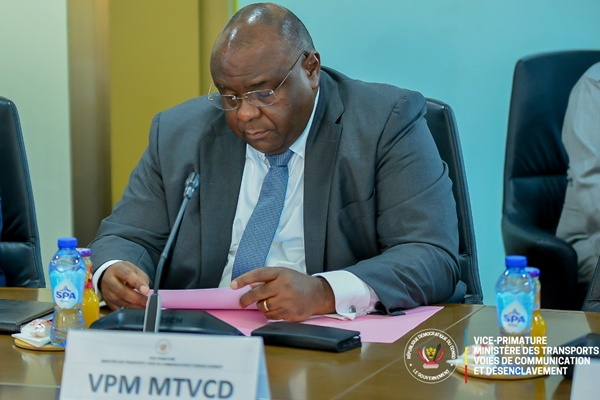The task force set up to boost cooperation between China and the Democratic Republic of Congo (DRC) met last week, on October 16, in Kinshasa, DRC. This is the group’s second meeting since its creation. The meeting was attended by the Congolese minister of foreign trade, Julien Paluku, and China’s ambassador in the DRC, Zhao Bin.
Besides boosting cooperation between the two countries, the Sino-Congolese task force aims to help the DRC secure a significant share of the $50.7 billion in funding announced by Chinese President Xi Jinping at the ninth Forum on China-Africa Cooperation (FOCAC) in Beijing on September 5. According to Julien Paluku, Zhao Bin was invited to “expand on the 10 actions announced by President Xi during the FOCAC and outline the four priority sectors for the projects we must develop”.
After last week’s meeting, Paluku revealed that the top four sectors include agriculture, mining transformation, and digital technology. The Congolese official said Ambassador Bin stressed that “the projects (ed.note: submitted) must come with feasibility studies, which can also be done by Chinese companies”. Paluku noted that each ministry must prepare projects that will be submitted to the Chinese side for financing. However, before the projects are submitted they must be validated by the Sino-Congolese task force.
The task force is coordinated by Jean-Pierre Bemba, the Minister of Transport, Communication Routes, and Opening-up, the task force ensures that projects submitted for Chinese funding are well-prepared and meet priority sectors.
A stronger cooperation
Last September, at the FOCAC, the DRC and China signed an economic partnership agreement in Beijing to enhance their collaboration. This agreement aims to promote inclusive and sustainable growth by supporting the DRC's industrialization and improving its agricultural competitiveness in global markets. The two countries plan to ease trade through the liberalization of goods and services while boosting cooperation in ecological development.
The agreement focuses on four main areas: simplifying trade between the countries; improving economic inclusiveness and sustainable development; strengthening supply chains by attracting investment for Congolese industries; and advancing the DRC's digital transformation with initiatives in e-commerce and logistics.
If successful, this cooperation could increase China's influence in the DRC. The American think tank China Economic & Strategy Initiative (CESI) has identified the DRC as a key center for Chinese economic influence in Africa. CESI also notes that the DRC has one of the largest gaps in economic influence between China and the United States, with an 11-point lead for China.
Emmanuel Tumanjong










